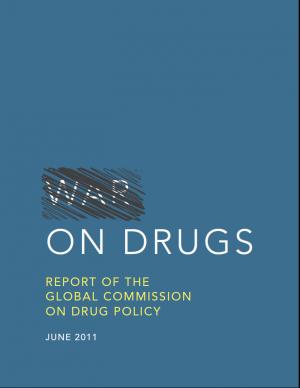“Break the taboo on debate and reform. The time for action is now.” These words embody the call to action put forward this month by the Global Commission on Drug Policy in a report arguing that “the global war on drugs has failed.” The Commission advocates for decriminalizing the drug market. The “global drug prohibition regime” has been self-defeating and counter-productive: “Government expenditures on futile supply reduction strategies and incarceration displace more cost-effective and evidence-based investments in demand and harm reduction.” In other words, repression has not reduced harm. This latest report grew out of an effort launched more than two years ago by former presidents César Gaviria of Colombia and Ernesto Zedillo of Mexico in an attempt to provide new leadership on drug policy. The Commissioners include a venerable array of public figures including a former U.S. Secretary of State, the Prime Minister of Greece, a former president of Switzerland, the former Secretary General of the United Nations, and the former Chairman of the U.S. Federal Reserve, among many others.

Unsurprisingly, the head of the U.S. Office of National Drug Control Policy, Gil Kerlikowske, published a rejoinder on Monday which shows the United States's continued unwillingness to seriously consider alternatives to the existing drug control regime. He dismissed the report's recommendations by arguing that while it is “tempting to opt for seemingly easy answers to the world's drug problems,” prohibition is necessary for protecting communities’ health and safety. He argues science and evidence-based research supports his contention, despite the extensive documentation presented by the Global Commission on Drug Policy which directly contradicts this interpretation. Based on international comparative data, the Commissioners argue that a more humane approach has consistently been more effective in reducing the harm drug consumption causes for both individuals and communities.
Sadly, despite this important shift in international dialogue about the limitations and even negative consequences of the current drug prohibition regime, the United States, as the biggest market for both licit and illicit drugs in the world, and the most formidable drug warrior government, remains wedded to a destructive and myopic view of drugs' role in medicine and public health.

